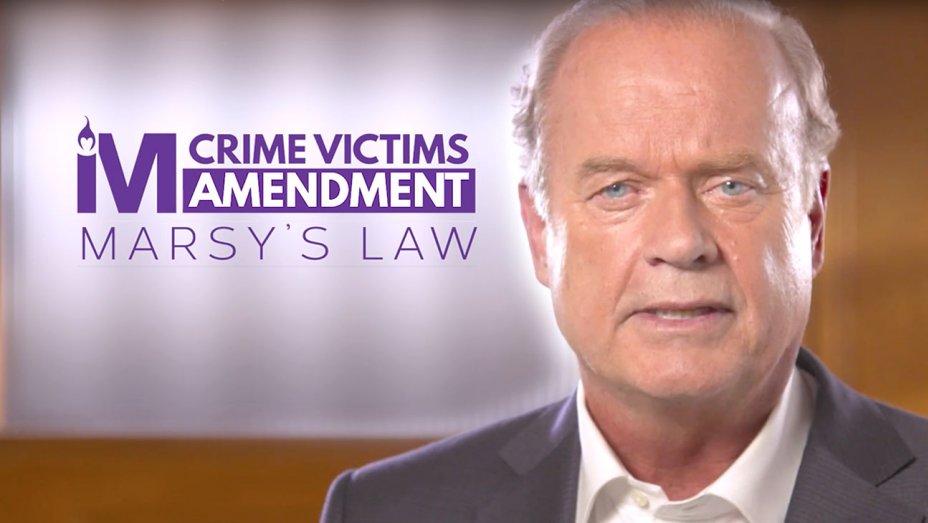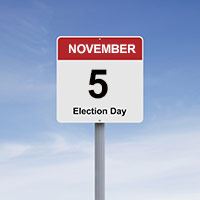Part 2 – State, County, and Local Races
Almost every year I see a ballot measure that is summed up into a simple statement that seems incredibly black-and-white. Occasionally these statements can be misleading – for example, in 2016, Pennsylvanians were asked if we should implement a mandatory retirement age for judges in the state at age 75. I know several people who told me that they voted in favor of this measure because they thought there should be a mandatory retirement age. What they didn’t know was that there already was: it was 70. Without understanding the full scope of the question (and in their defense, it was ambiguously worded), those who intended to get fresh blood on the bench sooner actually voted against it.
I have seen questions like this related to property taxes and after-school programs… and every time the issue is far more complex in real life than it seems on the ballot. I myself (when I was younger) voted for things that sounded good without researching them – in fact, without knowing about them until I entered the voting booth. And that lack of awareness is what I hope to address this week, specifically related to the statewide ballot measure of the Crime Victims’ Law, a.k.a. Marsy’s Law.
Statewide Issue: Amending the State Constitution – Crime Victims’ Law / Marsy’s Law
Marsy’s Law has been making its way around the country, backed not by a grassroots movement, but by billionaire Henry Nicholas, the brother of Marsy, who was murdered by an ex-boyfriend in 1983. Components of this law, which is designed to give increased protections to crime victims, have been adopted by 12 states to date, and it is up for public referendum in Pennsylvania.
While the concept of increasing rights for crime victims is noble, there are concerns about how broad and vague the language is. Some opponents say that the measure should be broken down into multiple amendments, rather than being presented as one. Other opponents state that victims’ rights are alread fairly well-defined in Pennsylvania’s Crime Victims’ Bill of Rights, which was adopted in 1998.[1] There are, however, a few items in Marsy’s Law that aren’t called out in the Crime Victims’ Bill of Rights, the most significant of which is the victim’s right to refuse discovery requests from the accused and/or the defense team.
It seems that victims’ rights would not be impacted very much by this amendment. Rather, the major changes would come in the powers the state has in prosecuting the accused. In particular, advocacy groups are concerned that adoption of Marsy’s Law could undermine due process and the presumption of innocence. Since the language itself is vague, it would largely be up to interpretation. Some concerning examples of potential outcomes included the following possibilities: law enforcement would not be able to share information about unsolved crimes with the public,[2] the victim could refuse to turn over important information during the pre-trial discovery process,[3] and the victim could gain the right to ask a judge for a new trial if the victim believes his or her views weren’t heard.[4]

Here is an overview of Pros and Cons for Marsy’s Law, as put together by the League of Women Voters:[6]
- Pros – This proposed amendment will increase the legal rights and privileges of victims and their families. It will ensure victims and their families are informed when the accused offender is released from custody. It will require crime victims be informed of their rights. It will protect victims and their families from the accused, or from those assisting the accused.
- Cons – The amendment would override state law, eliminating judges’ abilities to weigh the rights of victims and defendants. The amendment would alter nine existing provisions of the constitution without submitting each constitutional change separately as a ballot question as required by the PA Supreme Court. Victims are already protected by the PA Crime Victims Act of 1998. Victims could refuse to be interviewed or to turn over pertinent evidence or testimony. Passage would create additional costs and needs on law enforcement, courts and government officials.
Earlier this year the ACLU filed a suit on behalf of the League of Women Voters saying the measure is too broad to be put into one amendment. They were trying to get the referendum taken off Pennsylvania’s ballots for Tuesday, but as of the writing of this post, the ballot has not changed.
Allegheny County Issue: District Attorney – Zappala vs. Middleman
I wanted to look deeper into this race because it seems to be the most contested of this year’s county-wide races in Allegheny. Stephen Zappala, our sitting district attorney, is listed on both Democrat and Republican tickets, while his challenger Lisa Middleman is on the ballot as an Independent.
Zappala has been district attorney in Allegheny County for 21 years. At times, he was seen as a reformer who instituted progressive policies. His website lists his priorities as “keeping Allegheny County safe, … protecting the most vulnerable, … equity in our justice system, … [and ] safeguarding our civil rights.”[7]
However, in recent years, there has been increased concern about Zappala’s fitness for the position, particularly after his slow response to the shooting death of Antwon Rose, Jr. in 2018, and his failure to secure a use-of-force expert witness for police officer Michael Rosfeld’s subsequent trial this year. Particularly under scrutiny is his relationship with police, with respect to perceived leniency in cases involving police officers.

According to Pittsburgh’s NPR affiliate, “University of Pittsburgh law professor and 90.5 WESA legal analyst David Harris said Zappala has at times been on the cutting edge of reforms. But he noted that the national conversation about criminal justice – and its racial and class disparities – have shifted.”[9] Some grassroots voter education groups, such as OnePA, are calling for voters to remove him from office this November in favor of his challenger, Lisa Middleman.
Middleman is a public defender who is pushing comparatively progressive policies, such as “treating people with mental health issues or drug addiction, rather than incarcerating them.”[10] She is backed by an impressive ground campaign, with 200 volunteers gathering 10,000 signatures to get her on the ballot as an independent (almost three times the required number).
OnePA’s website describes Lisa Middleman as having “a vision of using prosecutorial discretion to reverse racialized prosecutions, ending over-policing, adding mental health and addiction services, keeping kids in schools, policing corporate polluters and making big changes in the court systems that allow us all to thrive.”[11] Middleman’s supporters are reminding voters to avoid the straight-ticket option in the voting booth, as she is listed as an Independent.
Local Issues: Borough Councils and School Boards
I did not include my research into my own municipality’s races in the attached spreadsheet because it would not benefit most of the people who are reading this post. However, I want to close with some comments about the importance of these smaller races.
It is often difficult to find any information on these candidates. Indeed, most of what I can find about my own borough’s council members is that, based on minutes from council meetings, some are currently on my borough’s council. (And that’s it.) Aside from knowing which are the incumbents, there is not a lot of readily-available information for the average voter doing last-minute research. These are small races, and most candidates don’t spend the time to put together a campaign website or profile simply because they can count on the people who know them in the community to vote for them.
I would strongly encourage you, however, to do some digging before Tuesday to find out if the candidates in your area are worthy of your vote. Check out websites for your municipality’s council and your school district. These sources may have information about current members and may even include minutes from past meetings.

What do these people do, anyway?
According to the League of Women Voters, school boards and their director “oversee the education of students in their jurisdiction. They serve as agents of the state legislature. They are responsible for curriculum and instruction management; all finances including development of annual budgets and levying of taxes and issuance of debt obligations when necessary; personnel; legal matters; management of facilities; and transportation of students as appropriate” (emphasis mine).
According to the Pennsylvania State Association of Boroughs, “borough governments provide an ‘organized’ voice for the community.” They are involved in “maintenance of streets and have ultimate responsibility for public safety, including police, firefighting and emergency management. Boroughs often provide water, sewer and refuse collection services. Boroughs also regulate the quality of life within the community.”[13]
Races of these types most directly impact the quality of life and the education of children in your community, and they are very frequently overlooked or under-considered. Please take the time to consider these races and their impacts.
Click here for my Pennsylvania and Allegheny County voting guide:
Do you have additional information or opinions on any of these races? I’d be happy to hear your thoughts. Remember to be courteous to your fellow voters.
Thanks for reading!
[1] https://www.legis.state.pa.us/cfdocs/legis/LI/uconsCheck.cfm?txtType=HTM&yr=1998&sessInd=0&smthLwInd=0&act=111&chpt=2
[2] https://www.pewtrusts.org/en/research-and-analysis/blogs/stateline/2018/10/12/marsys-law-protections-for-crime-victims-sound-great-but-could-cause-problems
[3] https://www.wesa.fm/post/marsys-law-explained#stream/0
[4] https://whyy.org/articles/is-marsys-law-constitutional-a-pa-judge-will-make-the-first-decision-soon/
[5] https://www.hollywoodreporter.com/news/kelsey-grammer-crime-victims-amendment-tv-ad-1154178
[6] https://www.vote411.org/ballot
[8] https://www.post-gazette.com/news/politics-local/2019/10/26/DA-candidates-raise-200-000-each-allegheny-county-middleman-zappala/stories/201910250159
[9] https://www.wesa.fm/post/jenkins-and-zappala-both-pitch-themselves-reformers-race-da#stream/0
[10] https://www.wesa.fm/post/middleman-says-she-ll-unseat-da-zappala-stepped-ground-game#stream/0
[11] https://onepa.org/votepittsburgh/
[12] https://www.co.westmoreland.pa.us/2323/Nov-5-General-Municipal-Election
[13] https://boroughs.org/pdfs/program_guide_to_borough_government.pdf
0 Comments